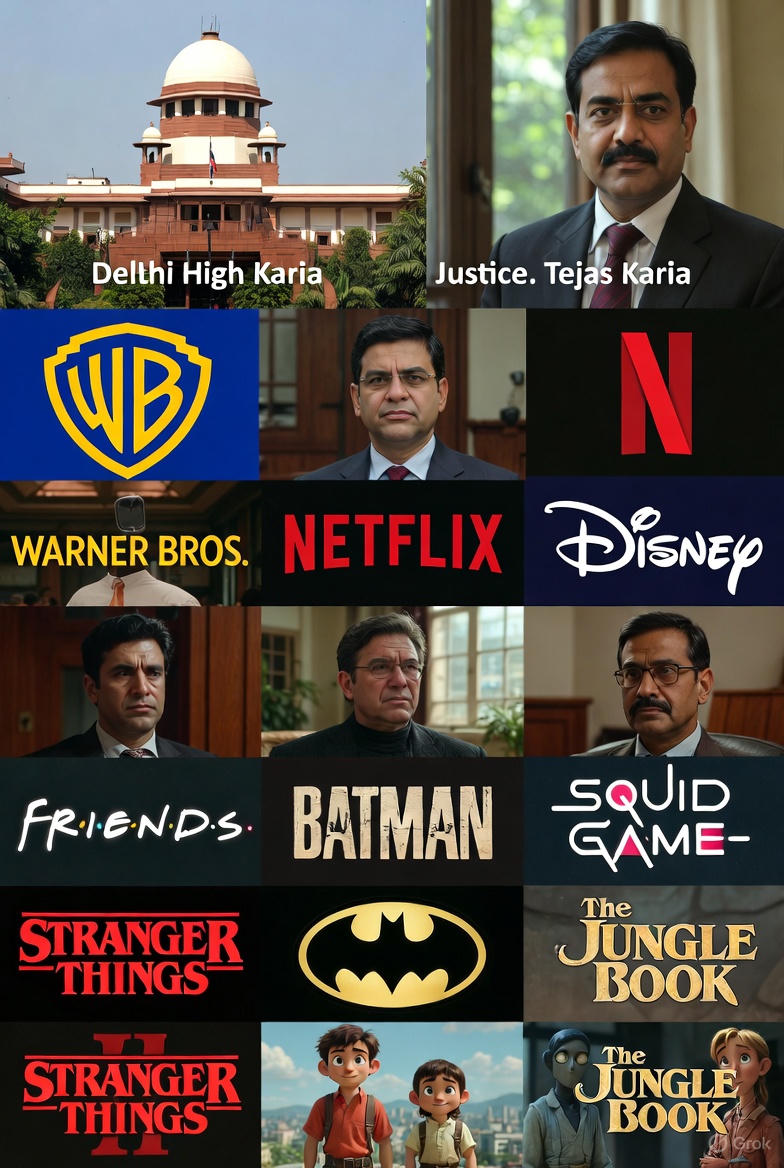The Delhi High Court delivers a devastating strike against digital piracy. Justice Anoop Kumar Mendiratta issues a powerful injunction. He orders the swift blocking of rogue websites. These platforms illegally stream iconic shows like Stranger Things and Friends. Content giants celebrate this bold victory.
Warner Bros. Entertainment Inc. spearheads the legal assault. Netflix, Disney Enterprises Inc., Apple, and Crunchyroll unite in battle. These powerhouse studios target dozens of piracy sites. Animesugez.to leads the rogue list. Mirrors and redirects shield the others. They distribute stolen content relentlessly.
The court moves decisively. It grants an ex-parte ad-interim dynamic+ injunction. This innovative weapon protects existing hits. It extends coverage to future creations instantly. Plaintiffs add new rogue sites easily. Pirates face endless pursuit.
Internet providers get strict commands. Block these sites in 72 hours. Domain registrars lock and suspend names. They submit subscriber data under seal. Innocent sites can appeal quickly. Justice balances speed and fairness.
The judge exposes piracy’s vicious cycle. He calls sites “hydra-headed” beasts. They sprout new domains after blocks. Illegal streams drain billions in revenue. They erode brands. They cause irreversible damage. Dynamic+ protection activates from creation. It prevents devastating losses.

Batman dominates darkness. Disney’s The Jungle Book enchants families. Crunchyroll fuels anime passion. Hits like The Conjuring 2, Wonder Woman, Aquaman, and Encanto fall victim too. Pirates exploit these treasures shamelessly.
Studios issue takedown notices first. Pirates defy them. Infringement explodes. Streams and downloads surge unchecked. Losses skyrocket. The case reveals widespread chaos.
This ruling advances India’s piracy war. Delhi High Court leads with dynamic injunctions. Past cases shield Netflix and Disney. Courts confront the worldwide menace. Enforcement strengthens. India matches global benchmarks.
Piracy devastates entertainment. Billions disappear annually. Creators suffer. Jobs vanish. Creativity stifles. Cheap data in India boosts illegal access. Rogue sites attract millions. Offshore servers evade justice. Users consume freely, ignoring consequences.
Giants counter fiercely. Netflix creates originals nonstop. Disney invests massively. They compete for loyal viewers. Piracy slashes subscriptions. It destroys confidence. This order restores power. It declares war on thieves.
Reactions flood social media. Experts applaud the crackdown. They commend judicial resolve. Fans divide sharply. Many support creator rights. Others mourn lost access. Arguments intensify. Advocates push legal platforms. Piracy harms artists directly.
Analysts forecast major impacts. Lawyers rejoice. Industry groups pledge vigilance.

India’s online world transforms rapidly. Broadband explodes. Streaming services dominate. Netflix claims huge audiences. Disney+ Hotstar leads. Piracy lingers stubbornly. Losses hit billions yearly. Courts escalate action. Laws toughen. Copyright tools empower rights holders.
Worldwide trends align. American courts block sites. Europe forces provider cooperation. India strengthens its stance. Precedents emerge. Dynamic+ evolves swiftly.
Obstacles persist. Pirates adapt cunningly. VPNs dodge blocks. Mirrors proliferate. Monitoring requires constant effort. Resources strain systems.
Viewers choose wisely. Legal options deliver superior quality. They fund innovation. Piracy invites viruses. It supports criminals. Awareness grows. Campaigns educate masses.
The case resumes April 20, 2026. Evidence mounts. Defendants might appear. Conflict escalates.
This decision signals a pivotal shift. Creators gain strength. Thieves retreat. Entertainment flourishes anew. Delhi High Court champions justice. Piracy empires collapse.
Protection dominates digital content. Artists produce boldly. Audiences subscribe ethically. The ecosystem thrives. Victory belongs to rightful owners.

